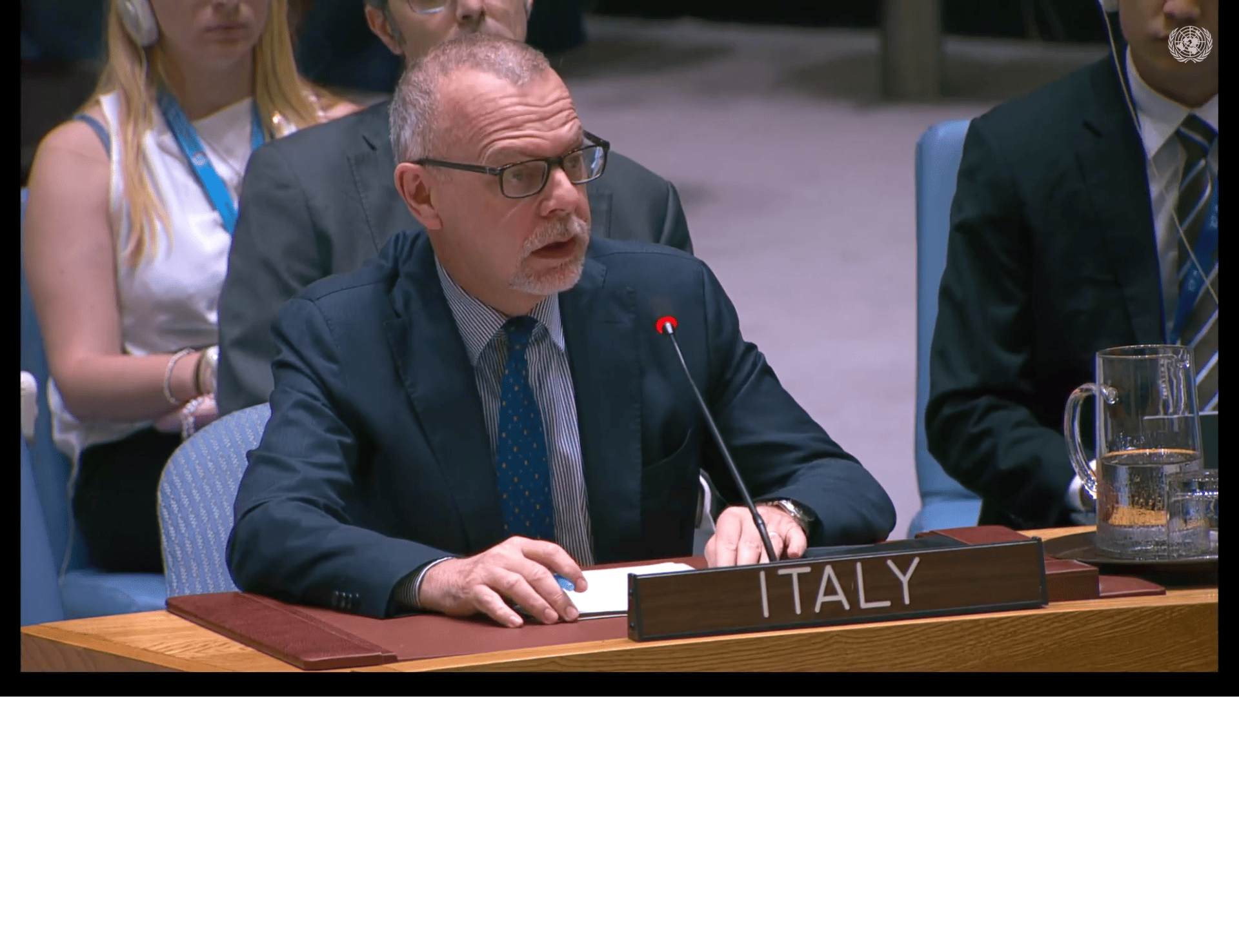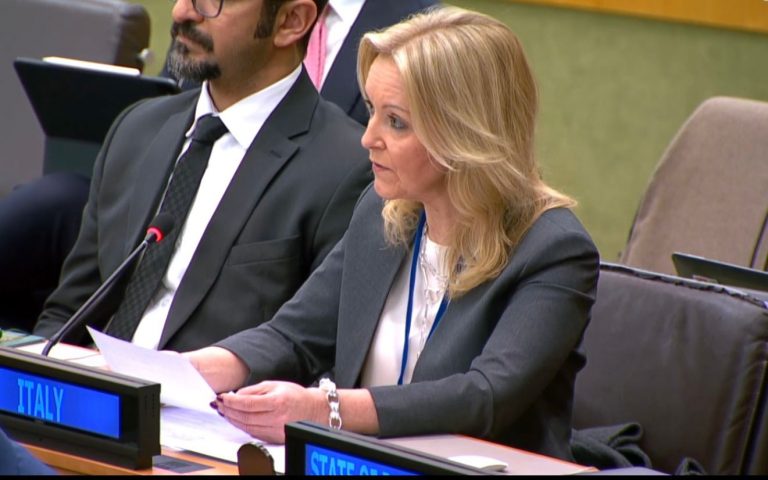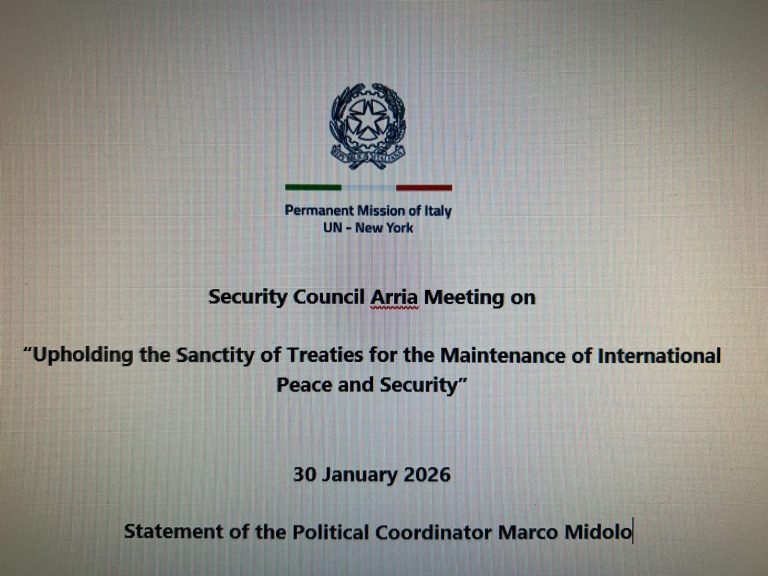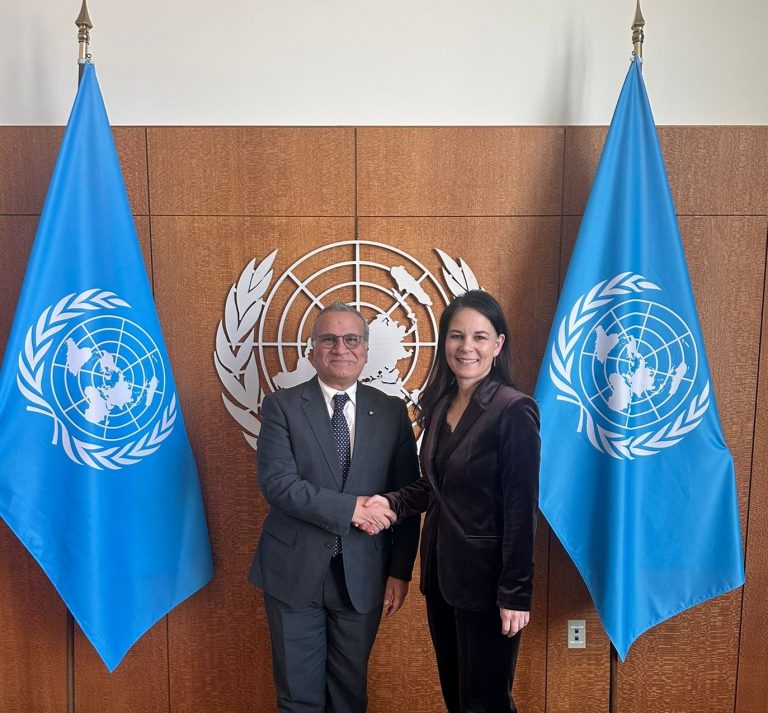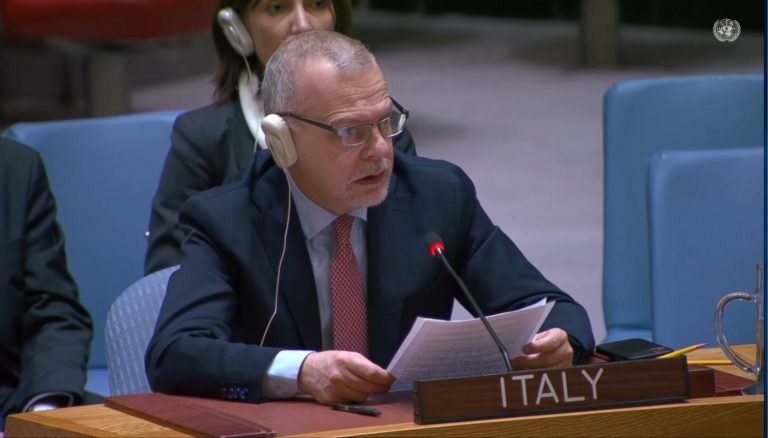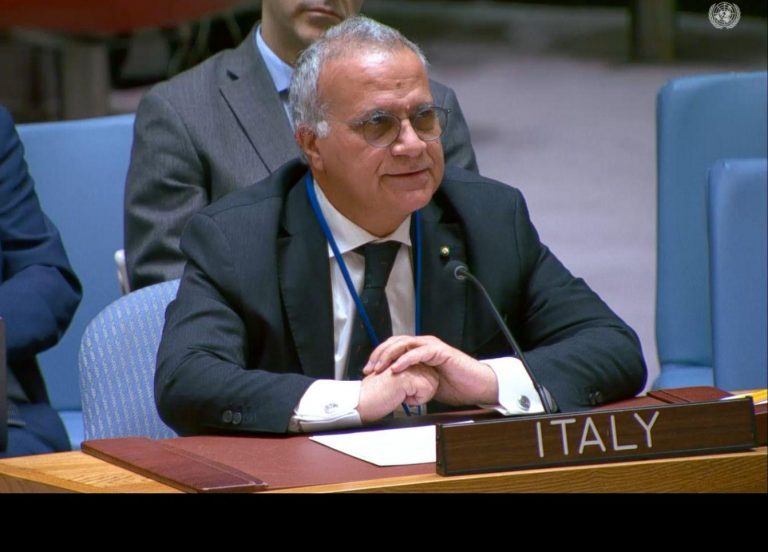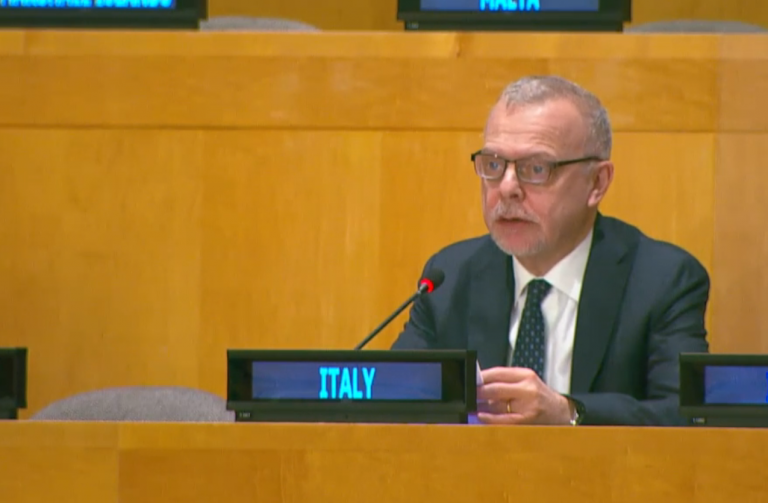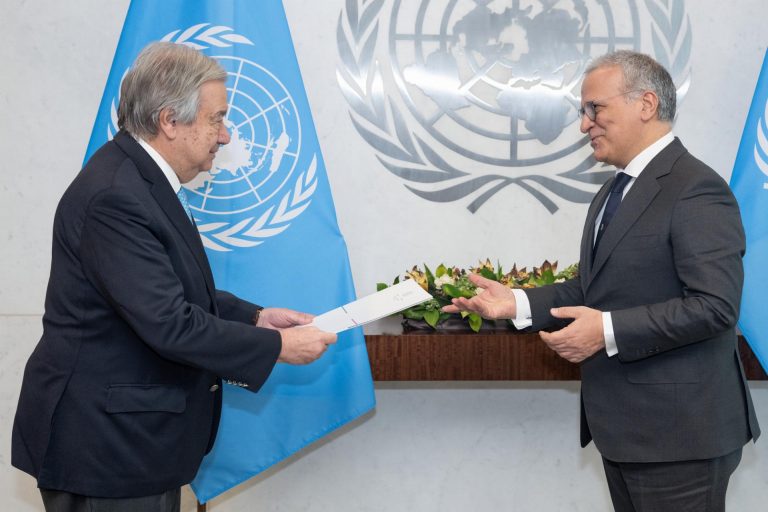Mr. President, Excellencies,
I thank Panama for convening this meeting. Italy aligns itself with the Statement delivered by the European Union, I would like to add some further remarks in my national capacity.
Maritime threats undermine global stability and restrict freedom of navigation, all to the benefit of terrorist groups and transnational organized crime. That is why we would like to emphasize today the importance in our strategies of tackling the nexus between terrorism and transnational organized crime which is an emerging security challenge, especially in West Africa.
Considering these challenges, we recognize the importance of the Security Council’s role in addressing maritime security in an innovative manner.
Our action must be grounded in existing international legal frameworks. The United Nations Convention on the Law of the Sea (UNCLOS) serves as the legal framework within which all activities in the seas and oceans must be conducted. Alongside it, other key conventions – such as the 1988 Convention for the Suppression of Unlawful Acts Against the Safety of Maritime Navigation – provide a strong legal basis for Member States.
In this context, we acknowledge the significance of previous Security Council decisions, including the Presidential Statement 15 of 2021 and Resolution 2634 (2022), with the latter specifically addressing the threat of piracy and armed robbery in the Gulf of Guinea.
We believe that Security Council’s recommendations must turn into concrete actions. We support efforts to strengthen the capacity of Member States to take effective measures against transnational organized crime at sea, and to share best practices for preventing and combating terrorism.
We also acknowledge the INTERPOL’s commitment to ensure a secure maritime environment by facilitating the exchange of information, strengthening first responders and law enforcement capabilities, and building international and cross-sector coalitions.
Last year, under Italy’s G7 presidency, we hosted an informal meeting of the G7++ Friends of the Gulf of Guinea in Rome, to support the development of the regulatory and capacity-building framework of the countries and the regional institutions that are part of the Yaoundé Architecture.
The implementation of the Yaoundé Code of Conduct, together with the regular presence of naval units from several European Union countries – including Italy –, and the continued support from the international community, have all played a crucial role in reducing piracy incidents in the Gulf of Guinea. This tangible progress is a clear demonstration of the value of close cooperation among local, regional, and international actors.
Moreover, it is fundamental to protect the rights of international merchant and commercial vessels in the Red Sea Region. Preserving freedom of navigation and maritime security in the area is essential. The international community’s unity on this issue is crucial. Greater collaboration with regional partners is needed, particularly with the Gulf countries and coastal states. Italy is actively engaged in Operation ASPIDES, working to protect vital shipping lanes in accordance with UNCLOS and UN Security Council Resolution 2722 (2024).
Italy remains steadfast in its commitment to upholding freedom of navigation globally and reinforcing the international law of the sea.
Thank you.







